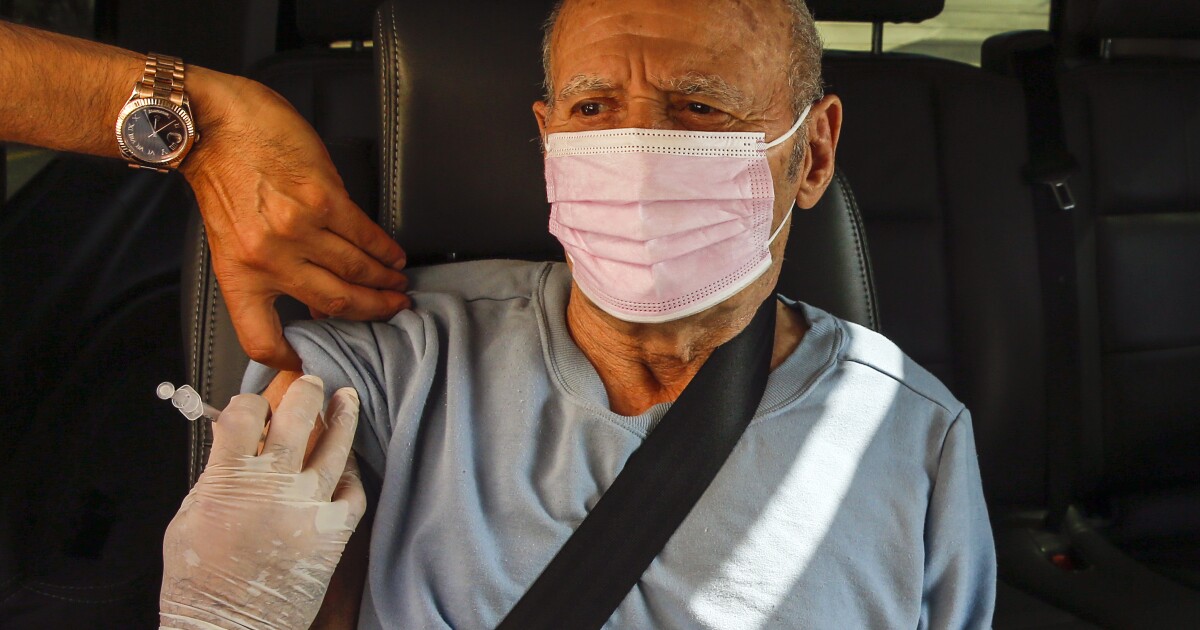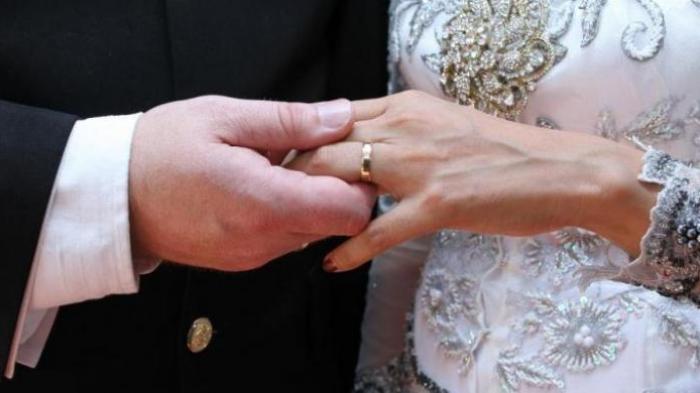With growing confusion over who is eligible for COVID-19 booster shots, California health officials updated state guidelines Tuesday to essentially recommend that all adults receive the additional vaccines.
The California Department of Public Health measure could be a precursor to similar measures by federal officials later this week. There is growing expectation that the U.S. Food and Drug Administration (FDA) and the Centers for Disease Control and Prevention (CDC) will officially make booster doses available to all Fully inoculated adults, provided sufficient time has passed since their initial vaccination.
California’s move echoes recent efforts in places like New York City, Colorado, and New Mexico, as some health officials across the country voiced alarm over slow adherence to the boost and a possible fifth COVID-19 outbreak that could occur this winter. The average daily coronavirus cases across the country increased by 14% over the last week, and that of daily new hospital admissions for COVID-19 by 5%.
The problem, some experts note, has been an overly complicated set of guidelines issued by the CDC weeks ago about who is eligible for the boosters. Some experts point out that they have been so confusing that many of those who most need these additional vaccines – the elderly and people with chronic medical conditions – have not received them.
Some encountered obstacles when getting their reinforcement. Others have found it difficult to square the state’s stance with the seemingly stricter federal guidelines still on the websites of many pharmacies operated by national chains.
The ambiguous message prompted California to embark on a more focused effort to clear up the confusion about who should apply the reinforcement. As Governor Gavin Newsom announced at a press conference Tuesday in Kings County, in the San Joaquin Valley – one of the least vaccinated areas in the state – “Anyone who wants a booster can get it.”
“If you were vaccinated, and it has been six months, now you can apply a booster [si tiene] 18 or older, ”Newsom told reporters at Avenal High School. “This virus, this disease is not going to take a break in the winter,” added the governor. “Boosters are important both to deal with lowered immunity and to help us get through this winter.”
But it could be several more days before federal agencies revise their guidelines and the widespread confusion over eligibility is alleviated.
The new state recommendations came a week after the state health official and director of public health, Dr. Tomás Aragón, ordered in a letter to vaccination clinics not to reject any adult patient who wanted a booster, always and when at least two months have passed since they received the Johnson & Johnson vaccine or six months from their second dose of Pfizer-BioNTech or Moderna.
That prompted some counties, including Los Angeles, Ventura, San Francisco and Santa Clara, to update their local guidelines to make clear how easy and available backup is. But others have not, and it is unclear how many residents are aware of the changes.
Encino’s Bria Dotson entered the Balboa Sports Complex Tuesday afternoon not knowing if she could get the booster. “If they turn me down, I’ll make an appointment,” said Dotson, who wanted to get the extra dose because she works with other people in an office, five days a week.
For many, the hurdle is the criteria listed to be able to apply the boost when trying to book an appointment. Some stated that they do not qualify for either category.
California’s MyTurn.ca.gov website, for example, until Tuesday night kept asking if the person who wanted to make an appointment was a resident of a long-term care facility, such as a nursing home, was at high risk. suffering complications from COVID-19, had a high risk of exposure due to their occupation or institutional environment, or with a higher risk of social inequities. If “no” is answered, the website indicates that the individual is currently ineligible.
However, there is one category that virtually all adults qualified for, according to the permissive interpretation recently articulated by California health officials.
Under this interpretation, basically all adults were eligible because they were “at high risk of exposure to COVID-19 due to their occupation or institutional setting.”
For some, this initially appeared to be at odds with the guidance issued by the CDC.
For weeks, the CDC claimed that – among those who received the Pfizer-BioNTech and Moderna vaccines – those eligible for a booster include adults “who work or live in high-risk settings,” such as schools, hospitals, supermarkets. , factories and prisons.
But the CDC also deliberately allows vaccinated adults to use their own judgment to determine whether they believe they are at increased risk of exposure. This is the interpretation that various states and local governments focused on when urging all fully vaccinated adults to receive a booster as soon as possible.
As a result, some health officials are basically saying to those who want the booster: If a pharmacy or clinic asks you if you are at high risk of exposure to COVID-19 because of your work or institutional environment, say yes and you will receive the vaccine.
Still, it would be much easier for patients to receive their boosters without that kind of hassle, and some vaccine providers and appointment schedulers are already working to update their eligibility language to be consistent with the simple new wording. released by the state on Tuesday.
The state is in the process of updating the criteria listed in its MyTurn appointment scheduling tool. And representatives for Ralphs and Albertsons, which also runs Vons, Pavilions and Safeway, reported Tuesday that they are working on the update in light of the new California recommendations.
CVS, on the other hand, has no immediate plans to change its wording to reflect California’s most recent recommendation. “Our participation in the federal pharmacy program requires us to follow the recommendations of the FDA and CDC,” said CVS spokeswoman Monica Prinzing.
A Walgreens spokesperson did not specify whether the chain would change the wording of its eligibility criteria for California residents, only reported that the company will administer booster doses to “patients who attest to meeting eligibility.”
All of this confusion could be resolved once federal agencies act on a new request from Pfizer to make its vaccine available as a booster for all adults.
The FDA could make its decision later this week, just before a CDC advisory committee meets on Friday. That would set up a situation where the agency’s director, Dr. Rochelle Walensky, could move with speed to officially expand booster eligibility for all adults this weekend.
Some epidemiologists consider it a good idea to extend access to boosters to all adults. While younger, healthier vaccinated individuals are unlikely to become seriously ill or die from a coronavirus infection, the booster will help reduce the likelihood that they will become infected and transmit the coronavirus to older people and others with a much higher risk.
“If younger people strengthen their immunity, it would help reduce transmission rates in the community,” said Dr. Robert Kim-Farley, a physician epidemiologist and infectious disease expert at UCLA Fielding School of Public Health.
For Dr. Kirsten Bibbins-Domingo, chair of the UC San Francisco Department of Epidemiology and Biostatistics, a simpler message will help stimulate booster shots for more people, including those who need them most.
In California, only 38% of fully vaccinated adults 65 and older received a booster. And overall, about 4.23 million people did so statewide.
Reinforcement will be especially important “as winter approaches, a time when we all gather indoors for long periods, without masks, with people we don’t normally go out with,” Bibbins-Domingo added.
“That is why everyone should receive their reinforcement,” he added. “What is clear from the most recent data is that any individual can contract an infection after being vaccinated. And if that happens, I could pass it on to someone else. “
Marcie Aboulafia, 79, of Encino, received her Pfizer-BioNTech booster Tuesday morning at the Balboa Sports Complex. Previously, he had tried various pharmacies to no avail. It was important to her to do so now, as she plans to travel to Oregon for Thanksgiving. “I just didn’t want to go without the reinforcement,” he remarked.
Elton Velásquez, 45, of Tarzana, also went to the Balboa Sports Complex to apply his reinforcement on Tuesday morning. He was accompanied by his nine-year-old son and seven-year-old daughter, who were ready to receive their first doses of the Pfizer-BioNTech vaccine. “It is my civic duty,” he said. “We think of other people.”
To read this note in English, Click here.
–


